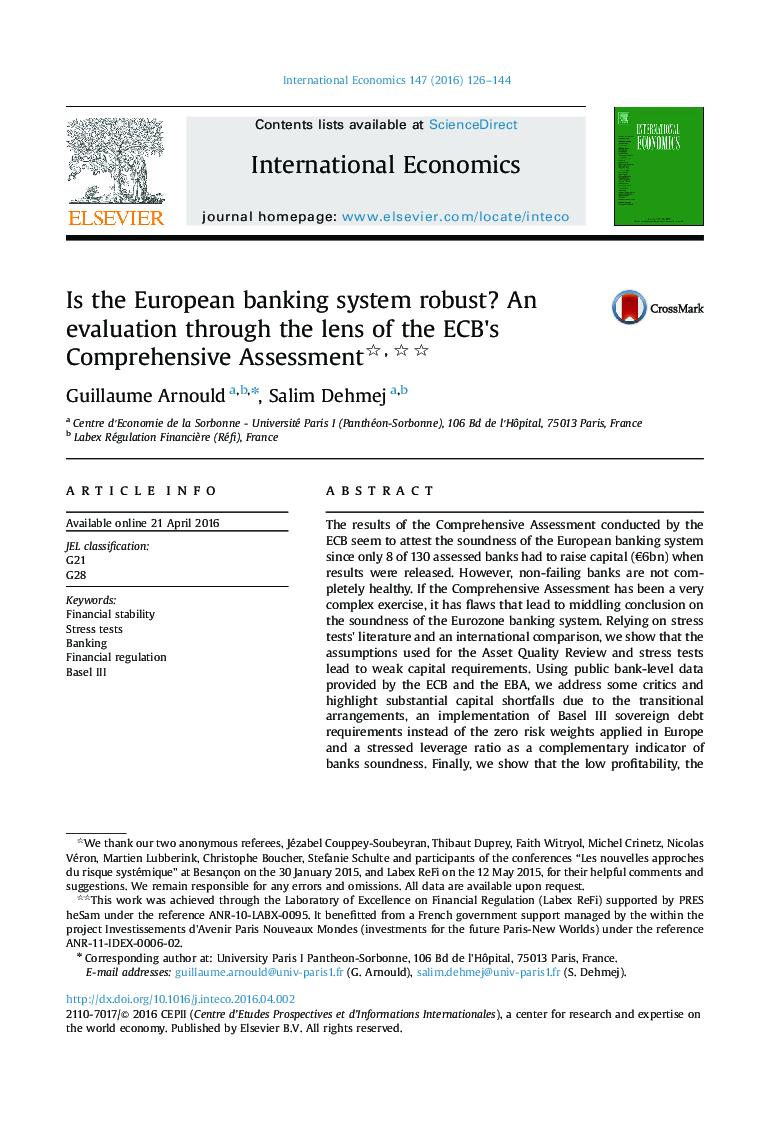| Article ID | Journal | Published Year | Pages | File Type |
|---|---|---|---|---|
| 999120 | International Economics | 2016 | 19 Pages |
The results of the Comprehensive Assessment conducted by the ECB seem to attest the soundness of the European banking system since only 8 of 130 assessed banks had to raise capital (€6bn) when results were released. However, non-failing banks are not completely healthy. If the Comprehensive Assessment has been a very complex exercise, it has flaws that lead to middling conclusion on the soundness of the Eurozone banking system. Relying on stress tests׳ literature and an international comparison, we show that the assumptions used for the Asset Quality Review and stress tests lead to weak capital requirements. Using public bank-level data provided by the ECB and the EBA, we address some critics and highlight substantial capital shortfalls due to the transitional arrangements, an implementation of Basel III sovereign debt requirements instead of the zero risk weights applied in Europe and a stressed leverage ratio as a complementary indicator of banks soundness. Finally, we show that the low profitability, the massive dividend distribution and the incurred fines, give rise to concern on the ability of Eurozone banks to meet the incoming capital requirements.
